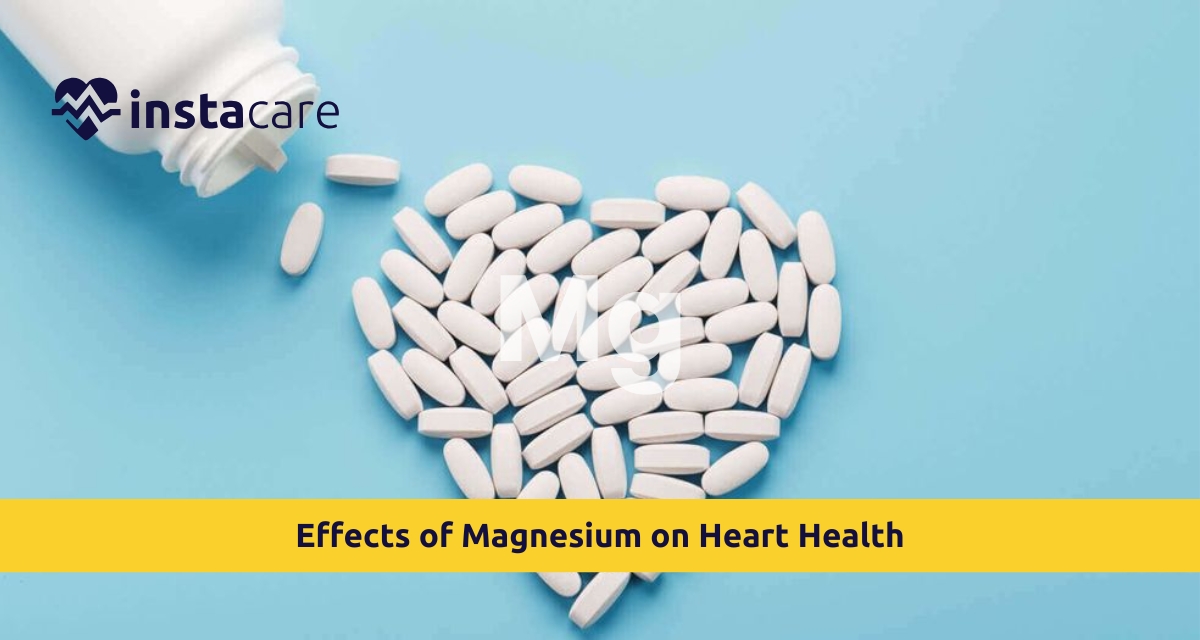Magnesium is probably one of the least discussed minerals, yet an important one that people use or talk about. However, an essential mineral assists in the proper functioning of most parts in the body, for which maintaining a healthy heart rhythm is most critical. Patients who are aware of how magnesium works with regards to heart health are much more likely to be able to make lifestyle and nutritional choices that can protect their heart.
Role of Magnesium: General Overview
Magnesium is the most abundant mineral in the human body and participates in more than 300 biochemical reactions. The mineral therefore has many application functions in the human body. Among them are the following:
- Muscle Function
- Nerve Function
- Energy Production
Effects of Magnesium on Heart Health
Regulation of Rhythm
It acts upon the heart through electrical signals and is of prime importance in conduction so that it can allow a regular rhythm of the heart. A natural calcium blocker, it works by blocking any excess into the heart's cells. According to this action, it results in arrhythmias, which is the technical term used for the description of abnormal heartbeats.
Action Mechanism
- Action Potential: Magnesium impacts the action potential of
cardiac cells. An action potential is a force that is caused by an electrical
impulse that will make the heart muscle contract. Magnesium controls how cell
membranes function by preventing the heart muscle cells from acting too
impulsively and causing abnormal heart rhythms.
- Maintain the balance of electrolytes: Magnesium helps potassium and sodium electrolytes maintain a right balance to run cell membranes properly. The heart is dependent on this to be healthy and perfect rhythm.
Decrease the Chances of Arrhythmias
When your heart beats in unpredictable patterns this is
called arrhythmias. Primarily stress and sickness trigger arrhythmias in
addition to irregular heart rhythm problems. Low magnesium levels have been
linked to an increased risk of arrhythmias, particularly atrial fibrillation,
which is the most common type of irregular heartbeat and can cause stroke if
untreated.
Studies and Findings
- Research Evidence: Many studies found that magnesium
supplementations are very effective in preventing incidence rates of
arrhythmias in people who even suffer from any heart diseases. Many various
studies have come up with different results, claiming that more amounts of
magnesium will be related to reduced possibilities for acquiring AFib or any sorts
of arrhythmia.
- Postoperative Advantages: Magnesium has also proven to be of immense value in patients postoperative after cardiac surgery when it stabilizes the heart rhythm. Its function to reduce the chances of arrhythmias in the same patient population highlights its critical role in heart recovery.
Blood Pressure Homeostasis
One of the main predisposing factors of heart diseases as well as arrhythmias is hypertension. Magnesium keeps blood pressure homeostasis due to various pathways:
- Vasodilation: Since magnesium can cause relaxation within
blood vessels, it should decrease the tension of blood as well as be reducing
the burden on the heart. Potentiation of action of vasodilation increases its
rate of flow and is safe for hypertensive.
- Hormonal Regulation: Magnesium regulates the release of hormones that regulate blood pressure through various pathways. For example, the hormone aldosterone manages sodium levels and thus controls potassium levels in regulating blood pressure. These electrolytes need to be kept in balance for normal blood pressure levels.
Anti-Inflammatory Properties
One of the leading causes of cardiovascular disease is
chronic inflammation. Magnesium possesses an anti-inflammatory effect that
tends to decrease inflammation levels in the body and promotes heart health.
C - reactive protein (CRP): Mg association is found to have
a positive correlation where higher the intake has lower concentrations of
blood of this inflammatory marker, which is also related to heart attacks and
strokes. Thus, Mg could reduce CVD events associated with heart failure and
stroke secondary to hypertension through inflammation mediation.
Food Sources of Magnesium
Including magnesium-enriched food items in diet can help maintain normal levels of magnesium content. There are some pretty wonderful examples given below:
- Greens: There are a ton of magnesium within spinach, kale,
and Swiss chard. The greens could easily be incorporated into salads or
smoothies as well as a host of other cooked dishes.
- Nuts and Seeds: Almonds, cashews, pumpkin seeds, sunflower
seeds. All these are rich in magnesium. A handful of nuts can be a great snack
or added to food for extra nutrition.
- Whole grains: Brown rice, quinoa, whole wheat bread. All the
grains are rich sources of magnesium, and choose a lot of unprocessed grains
more often.
- Legumes: Black beans, lentils, and chickpeas in your soups,
salads or more added in side dish items. These have been documented as the best
source of plant magnesium.
- Fish: Fatty fish like salmon and mackerel are rich in magnesium and omega-3 fatty acids, which help in heart health.
Recommended Daily Intake
The RDA for magnesium differs according to age and gender:
- Adult Men: 400-420 mg
- Adult Women: 310-320 mg
- Pregnant Women: 350-360 mg
- These daily values must be met to maintain general health and, specifically, heart health.
Magnesium Deficiency: Symptoms and Risks
These are symptoms of magnesium deficiency and include muscle cramps, muscle spasms in the muscles, including the heart; painful muscle spasms may interfere with an otherwise active life and may be generalized fatigue and weakness, which impact everyday activities as well as quality of life.
- Cardiac Arrhythmias: It tends to predispose towards
arrhythmias and heart palpitations or what is termed an irregular heart rate.
- Psychological Mood Changes: Magnesium partakes in neuro-transmitter activities and has certain association with psychological activity and moods. Thus, patients susceptible to magnesium deficiencies are prone towards anxiety and depression.
Risk Groups
Age factor and minimal absorption cases along with the rate at which deficiency would occur can, in turn-
- Older Adults: Age dependence causes age-dependent low
absorption or defective magnesium absorption due to increased susceptibility to
risk for deficiency.
Patients affected by Diseases of the Gut: Such patients can be diagnosed to have any of the following diseases:
- Crohn's disease and Celiac disease may be linked to absorption;
as such patients experience low absorption leading to their absorption.
- Renal impairment, since they cannot control magnesium
appropriately; and thus are associated with deficiency toxicity condition.
Athletes: The magnesium is excreted in the sweat during the exercise. Such individuals would need supplementations of magnesium for the body needs.
Conclusion
Magnesium is an essential nutrient in the heart health
development; its role particularly includes support for heart rhythm and
prevention of arrhythmia. One can feed his or her heart to improved health with
generous magnesium from the diet or supplement if necessary. Of course, being
so important, this mineral and awareness of magnesium-rich foods and deficient
levels, of especial concern with patients at risk, is an issue for everyone.
Please book an appointment with the best Cardiologist in Lahore, Karachi, Islamabad, and all major cities of Pakistan through Instacare, or call our helpline at 03171777509 to find a verified doctor for your disease.










